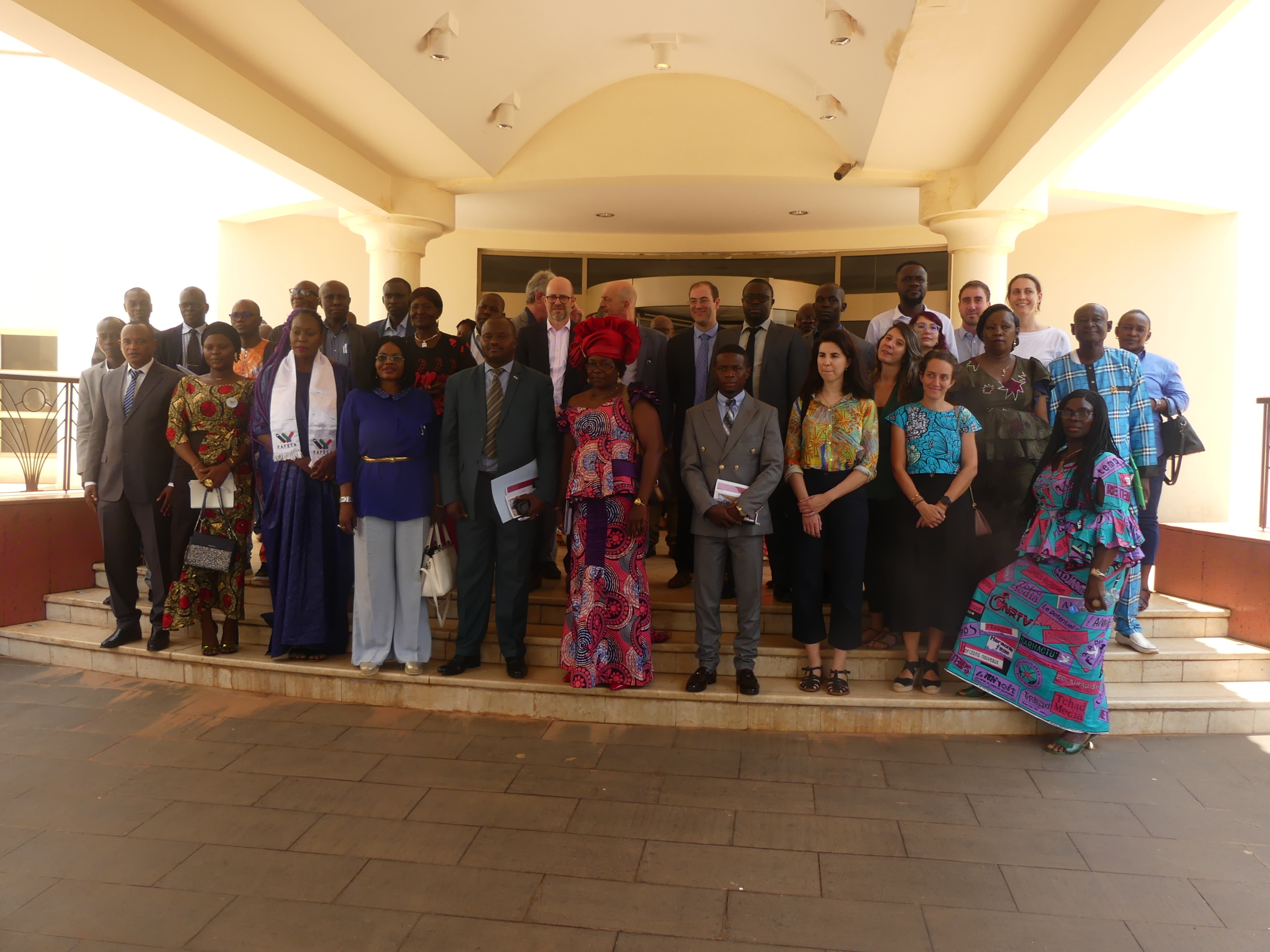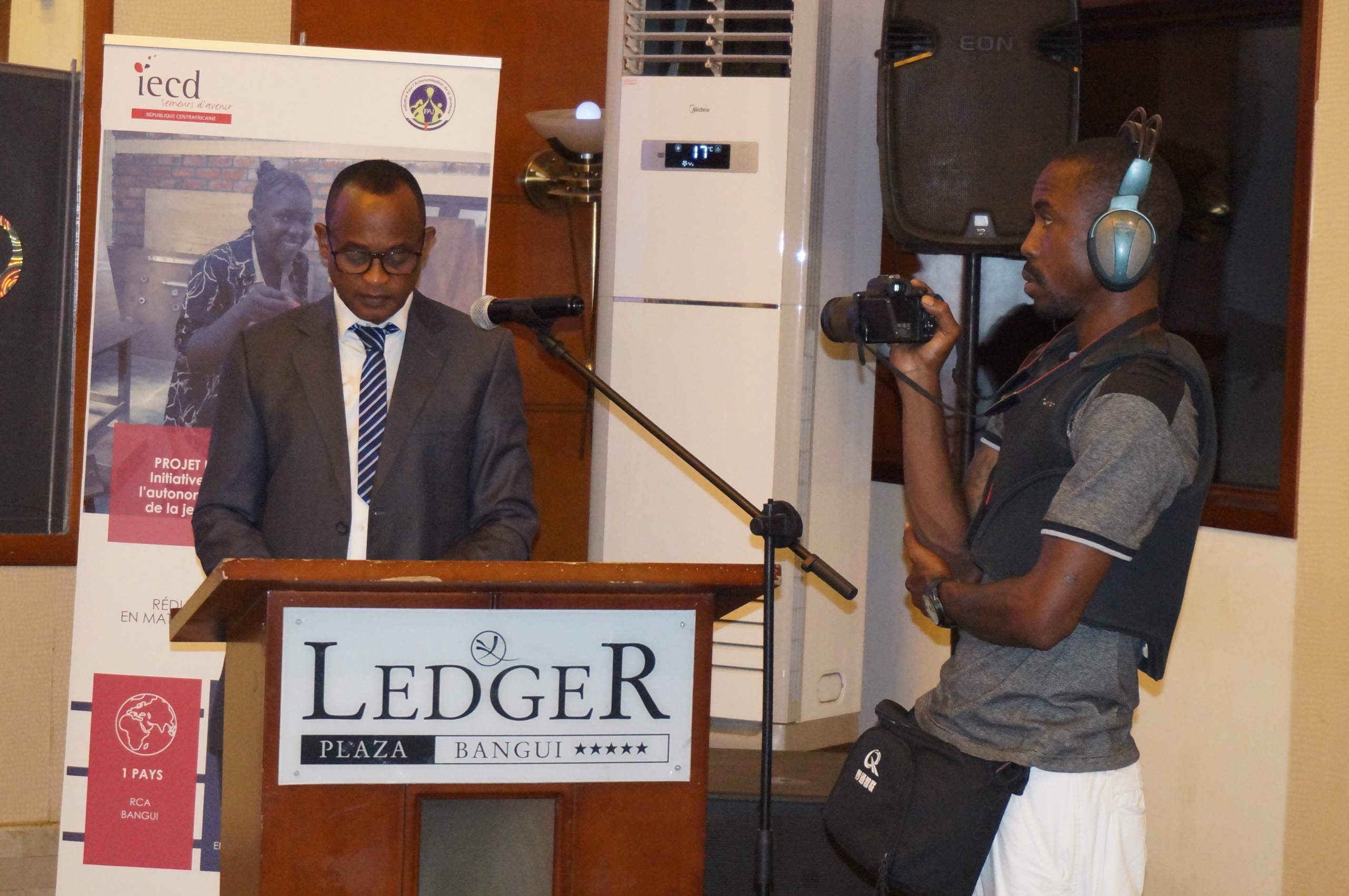The IECD supports Central African youth and entrepreneurs
In this context, the Agence Française de Développement (AFD) and the European Union (EU) have decided to co-finance a development project designed to meet these challenges. The Institut Européen de Coopération et de Développement (IECD) has been chosen to implement the project.
Focus on the “Initiative Pour l’Autonomisation de la Jeunesse” (IPAJ) project
The Initiative Pour l’Autonomisation de la Jeunesse (IPAJ) project was born. Its aim is to contribute to the empowerment and reduction of inequalities between women and men through access to training and improved socio-professional integration, thereby helping to strengthen the local economic context in Bangui and the surrounding area.
At the ceremony held on 27 March 2024, the IECD will officially launch the activities of the IPAJ project. This project will focus on three key areas: education, vocational training and support for entrepreneurship. By collaborating with existing institutions such as training centres, the IECD aims to support beneficiaries so that they become responsible actors. Their participation in a holistic training programme aims to improve their living conditions.
Particular attention will be paid to the specific needs and difficulties encountered by young women in the context of Bangui, and to highlighting female role models.
Employability, training and professional integration at the heart of the action
3. Accompagner l’insertion des jeunes femmes et hommes centrafricains et dynamiser le tissu économique à Bangui et sa périphérie pour favoriser le maintien et la création d’emplois, participant ainsi à la réduction des écarts d’opportunités professionnelles entre femmes et hommes.
The project has 3 main objectives:
1. To improve the employability of young people, particularly young Central African women, through a comprehensive training programme (technical and human), promoting their socio-economic integration and enabling them to play an active role in social cohesion and in reducing gender inequalities.
3. Supporting the integration of young Central African men and women and boosting the economic fabric in Bangui and the surrounding area to help maintain and create jobs, thereby helping to reduce the gap in professional opportunities between men and women.
“The aim of the project is to strengthen opportunities for women in sectors that are lucrative but currently largely considered ‘male’, such as construction and public works. By acquiring the necessary know-how and thanks to awareness-raising activities, they will be able to transform their lives and become responsible players in their families and communities, while at the same time changing perceptions and stereotypes linked to gender“, says Jean RUGAMBWA, Country Director of IECD CAR.
Employability, training and professional integration at the heart of the action
The project is aimed primarily at young people aged between 18 and 30 who have dropped out of school, as well as young people enrolled in vocational training in the training centres supported by the IECD. It will also provide support for very small and medium-sized enterprises (SMEs) in Bangui, with priority given to the sectors supported by the project, as well as support for market garden producers in Bangui and the surrounding area.
The project, which will run until December 2027, will offer a comprehensive, gender-sensitive programme for young people, from pre-training (1,075 young people in pre-training, 50% of whom are women) to vocational training (1,200 young people in vocational training, 30% of whom are women) and then to integration (800 young people supported into self-employment, 50% of whom are women), while at the same time strengthening local economic development to help maintain and create jobs.



